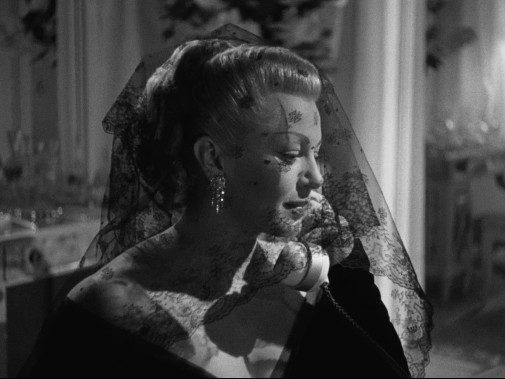This week The Film Experience will be celebrating Lana Turner for her Centennial. Here's Cláudio Alves

According to legend, Lana Turner was discovered in 1936, when she happened to be spotted by the publisher of The Hollywood Report while drinking a Coke at Schwab's Pharmacy. As with most myths of the cinematic Olympus, the story is unlikely to be true, though that doesn't take away from the allure of the actress. Whatever her origin story, Turner appeared in her first film the following year and quickly became one of Hollywood's most beloved sirens, an icon of glamor and sensuality, a megawatt star the likes of which we haven't seen in decades.
Despite it all, stardom doesn't necessarily equal prestige. Turner was often seen as little more than a pretty face and her acting craft was underappreciated. In 1957, a conflagration of many scandals, personal and literary, secured her a single Oscar nomination for Peyton Place. That wasn't the first time she was in the running for awards, however...

Back in 52, Turner probably came close to a nomination thanks to a juicy role, a great director, a buzzy picture and the most fabulous outfits you can imagine. None of that mattered for the Academy, who ignored her and, to add insult to injury, crowned one of her film's co-stars instead.
Vincente Minnelli's The Bad and the Beautiful tells the story of a callous producer who rises from the shadow of his late father to become a movie tycoon. Throughout his rise to power, Jonathan Shields screws over everybody, be it friend or foe, colleague or lover. Every star eventually dies and so it happens with Hollywood producers too. When the film starts, Shields is absent, but his plight for help makes itself heard. After years of success, he's fallen in disgrace and needs those who he once betrayed. The scenario prompts a tryptic of flashbacks, all recounting Shields' career and weaselly ways. First, there's the tale of a director, then an actress and finally a writer.
Lana Turner gives life to the starlet. She's Georgia Lorrison whose life story is an amalgamation of the biographies of Diana Barrymore and Jennifer Jones, perchance with a bit of Judy Garland mixed in. She's the grieving daughter of a celebrated actor who drank himself to death and whose legacy still haunts the actress. It's thanks to Shields that Georgia gets on the path to stardom, being mentored by a man who she'd end up falling in love with. In good melodramatic fashion, the producer cheats on his protégée, breaking her heart and making her seek independence.

Shot like a femme fatale and dressed like a goddess, Georgia is the picture's most complicated character, going through an arc that takes her from crushing insecurity to the cold-hearted confidence of a resentful celebrity. She fluctuates through several other personas, always trying on a different mask when the situation calls for it. Not all of them fit, as is the case of a seducing routine she performs in her apartment or the fussy Russian costume she's asked to model for one of Shield's epics. Turner's greatest asset is the way she plays performances within performances, delineating Georgia's evolution with the growing seamlessness of her social and cinematic acting chops.

At first, she's a mess, swiveling from register to register with reckless abandon, tainting eroticism with piteous tears and aggression with the nervous smile of a drunken girl. As she grows into a professional screen icon, there's poise in her step and a schooling of her expression that projects an idea of glamor. A glamor that is brittle and drained of joy. Hers is a Hollywood tale without a happy ending, after all. Not coincidentally, Turner's best moment comes when she makes one of the boldest choices a star can make, receding into the background. Georgia appears paralyzed by anguish, her face empty like that of a porcelain doll, her magnetism smothered.

In contrast with her leading man's explosion of vociferous self-pity, Turner's quiet stillness is as unexpected as it is sharp. The smiles of yore and romantic camaraderie burn in her shining eyes, her insecure persona finally shattered and forcefully rebuilt. Whatever the mercenary smiles of the film's final shot may suggest, Georgia was irrevocably broken by Shields in the night he revealed his betrayal. Turner's performance never lets us forget. It's not a great feat of transformative acting, but this characterization is vital to the film, modulating a real star's persona into a tragic figure that stands in for every woman similarly abused and mistreated in the dream factory of Hollywood.
In the end, Hollywood's elite overlooked Turner's work, preferring to reward Gloria Graham's unsubstantial portrait of a southern belle in the same movie. She would end up winning the Best Supporting Actress Oscar, while Lana Turner never conquered the coveted statuette.
